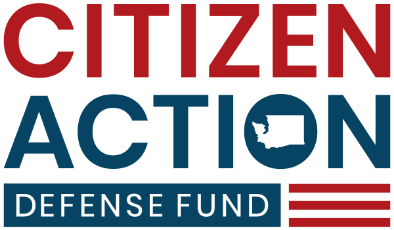(The Center Square) – A group of citizens and a conservative think tank have petitioned the U.S. Supreme Court to review the Washington State Supreme Court’s ruling on a controversial capital gains tax.
The petition was submitted Monday by the Olympia-based Freedom Foundation on behalf of nine individual plaintiffs. Named as respondents were the State of Washington, the state Department of Revenue, and Revenue director Vikki Smith.
The petitioners are asking the high court to consider the constitutionality of the tax, which they consider to be illegal.
It was enacted in 2021 by a narrow majority in Washington’s Democratic-majority Legislature and supported by Gov. Jay Inslee.
The petitioners say Washington’s state constitution mandates that all taxes on “property,” including income, must be uniform and capped at 1%.
To get around that limit, petitioners allege, proponents of the new law labeled it an “excise tax” – not an income tax – that places a 7% tax on long-term capital gains while exempting the initial $250,000 per year.
“… while that may have solved a state-law problem, it created a federal-law problem,” the petition states, noting that many securities transactions occur outside of Washington’s borders. That raises the question: does the U.S. Constitution permit a state to tax out-of-state transactions involving only out-of-state property?
The petition seeks a writ of certiorari, or judicial review of a lower court’s ruling. If the U.S. Supreme Court accepts the case, it will be reviewing the Washington State Supreme Court’s 7-2 decision in March that found the tax to be an excise tax, not an income tax.
Washington is one of nine states without an income tax, which places a heavy reliance on sales and fuel taxes to meet public expenses. Consequently, lower-income persons are disproportionally burdened compared to wealthy individuals, say supporters of the capital gains tax, which applies to only an estimated 7,000 state residents.
Forty-one other states tax capital gains as income, not as an excise tax, which is considered more broadly as a levy on certain goods, services, or activities.
Washington voters have rejected numerous prior attempts to amend the state constitution to impose income taxes.
Following its enactment in 2021, the new law was challenged by wealthy individuals, business and agricultural interests who claimed it violated state and federal constitutions. That view was supported last year by Douglas County Superior Court Judge Brian Huber, who ruled that the measure was in fact an income tax.
Huber’s ruling in the lawsuit, Quinn v. State, was appealed to the state Supreme Court by Washington Attorney General Bob Ferguson, a Democrat.
In its appeal to the U.S. Supreme Court, the Freedom Foundation contends the capital gains tax violates the Commerce Clause of the U.S. Constitution, which reserves to Congress – not individual states – the right to regulate interstate commerce.
While conceding that Washington’s law only affects a relatively small number of state residents, critics of the capital gains tax fear it could open the door to a graduated income tax.
“Washington’s liberals in every branch of government have long lamented the absence of an income tax in the state and sought ways to generate additional revenue by taxing high earners at a higher rate than those earning less,” the foundation said in a news release Monday.
“The framers of the Washington State Constitution recognized that earning should be encouraged, not punished, because economic success benefits everyone,” said Eric Stahlfeld, Freedom Foundation chief litigation counsel. “And more than 100 years of court precedent have supported that view.
“Had this case been heard by a federal court instead of state court, it would already have been thrown out,” Stahlfeld contended.
The listed petitioners are Chris Quinn, Craig Leuthold, Suzie Burke, Lewis Randall, Rick Glenn, Neil Muller, Larry and Margaret King and Kerry Cox.
The U.S. Supreme Court is under no obligation to grant a writ of certiorari, and usually only opts to hear cases of national significance. Four of the nine justices must agree to accept a case, and the court accepts 100 to 150 cases from more than 7,000 cases it asked to consider to review each year. The court begins its annual session on the first Monday in October.

